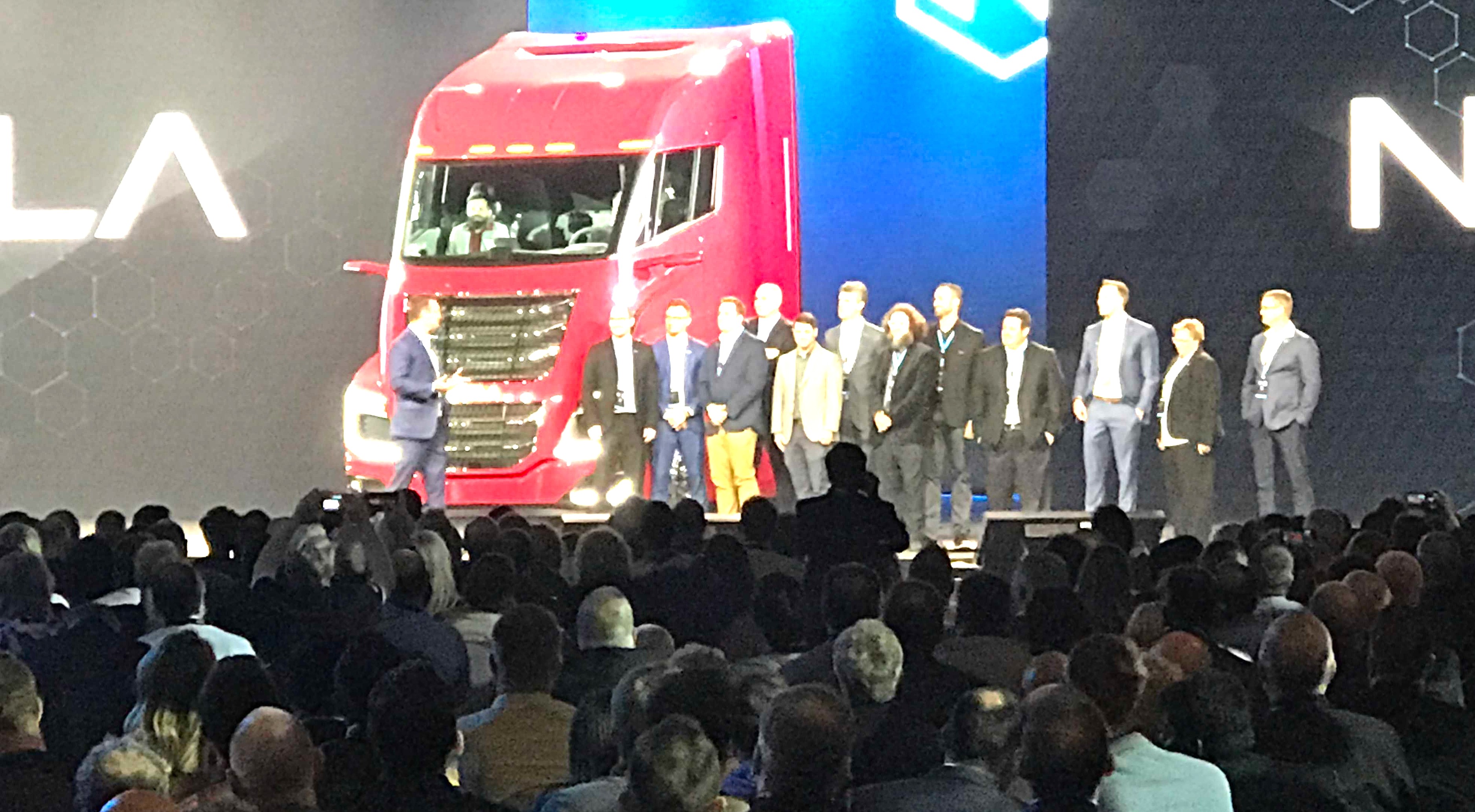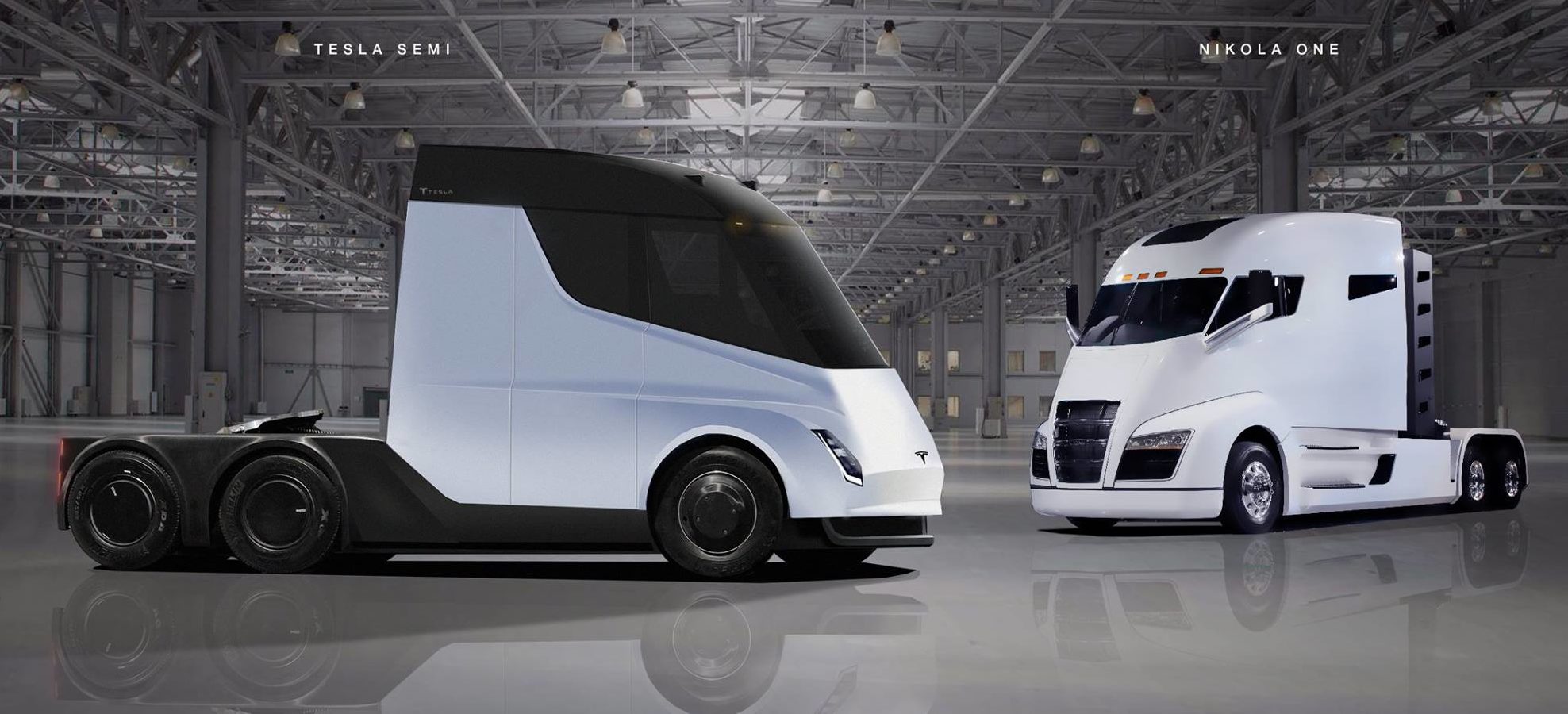In a recent interview, Nikola Motor CEO Trevor Milton noted that while electric trucks like the Tesla Semi will likely dominate short-haul jobs in the future, hydrogen is still the key for tomorrow’s long-haul routes. Speaking with trucking-themed publication Trucks.com, Milton provided some insights on his vision for Nikola’s trucks, his company’s electric vehicles, and why hydrogen makes sense as a sustainable source for propulsion.
Nikola Motor is still a small company, and it is attempting to breach a market that is populated by giants such as Volvo and Daimler. To make this endeavor a success, Milton noted that he needs to “build the iPhone of trucking,” which involves an ecosystem that does not just involve a vehicle, but its fueling infrastructure as well.
“Apple would not be Apple if the iPhone was just a phone. We don’t just provide you with the truck. It was about building the best back end a phone has ever had. And that’s what we do with Nikola… We provide you with all the fuel for the first million miles. When you sign on for Nikola we put in a hydrogen station with all your fuel covered, without any cost variation, for seven years. No one else will do that,” Milton said.

Nikola is yet to deploy its trucks to the market, and other disruptive companies like Tesla have unveiled trucks of their own. Tesla, for its part, designed the Semi as a fully-electric truck, just like its other vehicles. Amidst the rising competition in the green trucking segment, Nikola has also expressed its interest in offering battery-only versions of its vehicles. Milton explained this strategy in his recent interview, admitting that for some tasks, battery-electric trucks simply make sense.
“Around long-haul, you have more advantage on the hydrogen side because it’s lighter. It’s all about freight weight, or how much it costs to move a freight-ton per mile. There’s advantages to both infrastructures, but we’re mainly focused on the hydrogen side. We just offer battery-electric so we can tell people we’ll shoot you straight. There are areas where hydrogen does not make sense,” he said.
Nevertheless, the Nikola CEO maintained his stance on hydrogen, arguing that batteries still have disadvantages in terms of weight and cost. Milton also mentioned the ethical issues surrounding lithium mining; an issue that has been closely related to the emerging electric car industry, though he did state that batteries are a “really good solution” for short-haul tasks.

“The battery alone in an electric truck is going to cost $200,000. We’re shooting for an internal cost of $150,000 for our entire Nikola truck. Our truck also weighs less than the batteries in an electric truck. Now, electric is going to kick our butt in short-haul because it’s a really good solution, but electric trucks are not one size fits all. Right now, they’re digging up mines with child labor to pull lithium out to make batteries, and I’m tired of it. The only things that you can use and reuse indefinitely are water and hydrogen. It is the only resource that will not go away. That’s why we picked the hydrogen route.
“Our hydrogen trucks also take a big battery, so I can’t point the finger at anyone else. I have the same problem everybody else has, and I’m trying to get rid of it. The electric powertrain is the powertrain of the future. How we store the energy for it has got to change. We’ve got to figure out a way, whether it’s through ultra-capacitors or whatever it may be, where you can store all that energy without disrupting these scarce resources. Then the price will come down low enough that we can finally win,” Milton stated.
Battery technology continues to improve with the continued adoption of electric propulsion. Tesla, for its part, is working on removing cobalt from its batteries altogether, allowing the company to address the humanitarian issues surrounding cobalt mines in areas such as the Republic of Congo. During the recently held annual shareholder meeting, Tesla CEO Elon Musk even hinted at Tesla potentially entering the mining business, as a means to acquire the necessary materials for its products’ batteries.

<!–
–>
